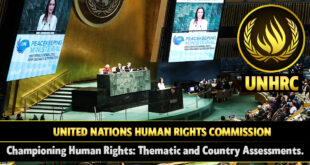The November 6 U.S. midterm elections may have come and gone, but the issue of voter suppression still lingers, drawing responses mostly along partisan lines. Many Republicans have wanted to tighten laws around voter eligibility, ostensibly to prevent fraud, and Democrats have wanted to make it easier for people to vote. This was exemplified by the Georgia gubernatorial race between Democratic candidate Stacey Abrams and former Secretary of State and Republican candidate Brain Kemp. On Friday night, Ms. Abrams acknowledged that the law did not offer her any further remedies to win the race but that “systemic disenfranchisement, disinvestment and incompetence had its desired effect on the electoral process in Georgia”. Democrats, including Ms. Abrams, have for sometime now been accusing Mr. Kemp and the Republicans of voter suppression. Last year, the State passed the ‘exact match’ law, requiring a voter’s name on government issued ID to exactly match the name as it appears on voter rolls. Over 53,000 voter applications were put on hold under this law, over two thirds of them belonging to African Americans, who comprise a third of Georgia’s population and tend to vote Democrat. Liberals are fighting back through various means: Mr. Kemp was sued last month by civil rights groups in Georgia over the voter application hold-up. Ms. Abrams and her supporters went to court and won limited victories, like an order that elections not be certified before Friday, November 16; that all provisional ballots be verified using “all available registration documentation”; and that ballots with minor discrepancies be counted. Voting centre issues Voting difficulties, however, extend beyond Georgia. The nonpartisan Election Protection hotline received some 30,000 nationwide complaints by mid-afternoon on November 6, including reports of a shuttered polling booth, machines that did not work, long lines and hard-to-access voting centres. Some Republicans, including President Donald Trump, have, without providing evidence, repeatedly alleged that there has been electoral fraud. Mr. Trump went so far as to say that voters disguise themselves and cast multiple votes. The President had also alleged widespread voter fraud in the 2016 presidential elections. Some of his colleagues had criticised Mr. Trump’s baseless claims and asked for evidence, which has not been provided. Studies have repeatedly refuted the claim that voter fraud is a significant phenomenon in the U.S. The Brennan Center for Justice, a non-partisan policy institute, for instance, concluded after a study published last year that “by any measure, voter fraud is extraordinarily rare”. Yet, as many as 24 States have introduced voter restrictions since 2010. These include making it harder for voters to register, cutting back on early voting opportunities and making ID requirements stricter
Check Also
Promoting Global Security and Peace: The Multifaceted Mandate and Initiatives of UNODA
TABLE OF CONTENTS UNODA Objectives and Functions Key Initiatives and Programs I.UNODA: United Nations Office …
 Chinmaya IAS Academy – Current Affairs Chinmaya IAS Academy – Current Affairs
Chinmaya IAS Academy – Current Affairs Chinmaya IAS Academy – Current Affairs



